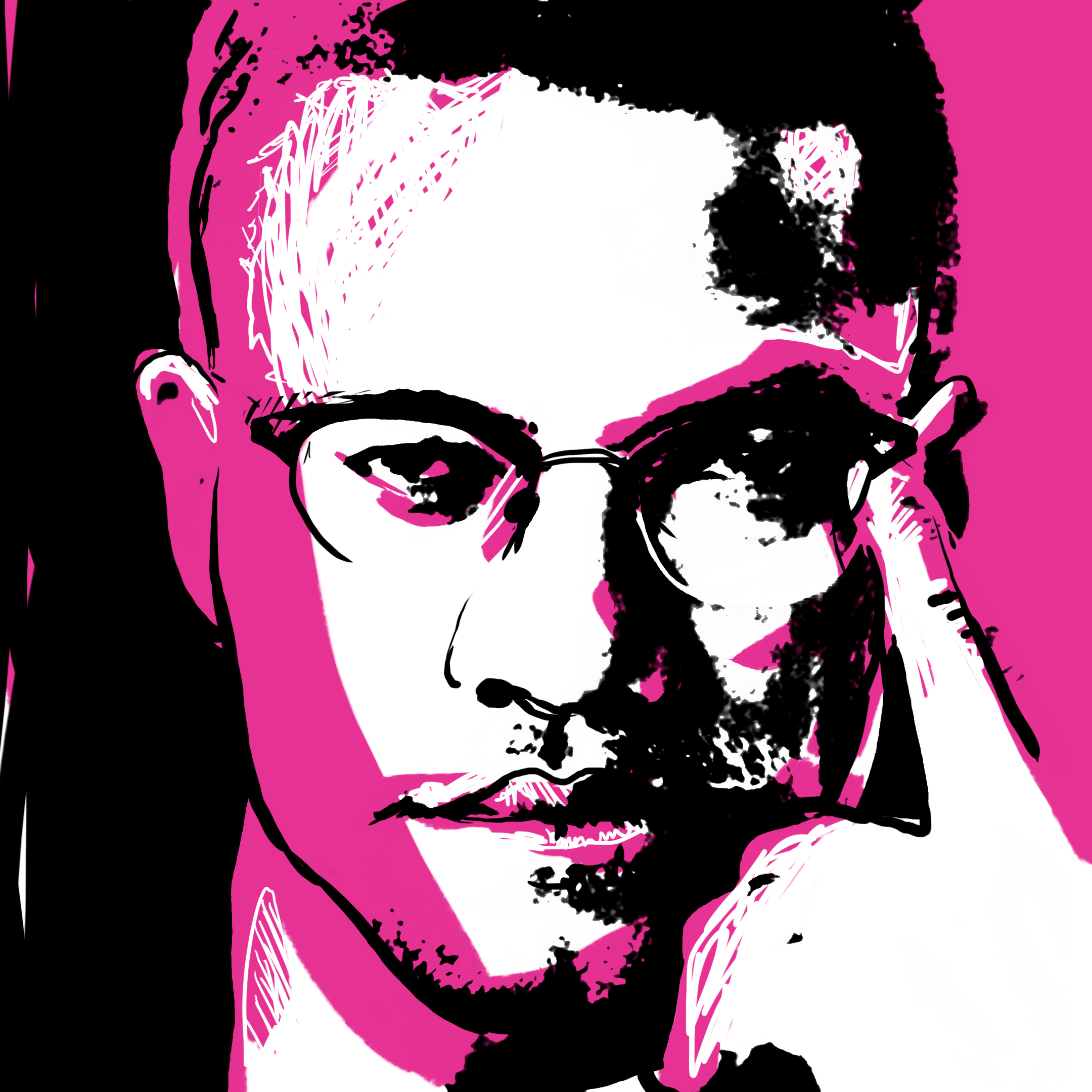October is Black History Month, and to celebrate, we’re featuring someone who has influenced history every Wednesday and Saturday all through October. Our first feature is Malcolm X.

Did you know, Malcolm X changed his surname from Little to X because white slavers gave out his family name?
Malcolm X was a Muslim minister and human rights activist. He is considered one of the most influential African Americans in history, campaigning for rights for black people with charisma and determination. He stirred in black people a sense of pride that they had not known before, inspiring them to empower themselves as he believed white people would not do it for them.
Malcolm X’s Story
Malcolm X was born in Omaha, Nebraska in 1925. His father was a Baptist Minister and activist for black rights. The outspoken nature of his father’s beliefs resulted in death threats from white supremacists, forcing the family to flee their home. Following this, their new home was burned to the ground and two years later, Malcolm X’s father was found dead after a traffic incident. Both were ruled as accidents, despite the family’s certainty that white supremacists were behind the attacks. These tragedies led to Malcolm X’s mother having an emotional breakdown and she was committed to a mental institution, and her children were taken into care.
Malcolm wished to study law at school, but was knocked back by a teacher who told him that the colour of his skin meant that was an unsuitable choice, and that he would never get a career in law, despite his academic achievements. He began to descend into a life of crime using the alias Detroit Red, and was eventually sentenced to 10 years in prison for armed robbery.
During his time in prison, Malcolm sought to educate himself further, reading to make up for the time he had missed after leaving school aged 15. This, coupled with visits from his siblings, led him to discover the Nation of Islam and the writings of their leader, Elijah Muhammad. The NOI believed that white society would always act to keep black people from empowering themselves, and so instead they should aim to separate themselves from white people.
By the time that Malcolm left prison, he was a devout follower, and due to his charisma and intelligence he was made a minister for the NOI. He is credited with increasing NOI memberships from 500 in 1952 to 30,000 in 1963.
A contrast from other civil rights leaders, he did not adopt a nonviolent method. Instead, he preached that if black people were attacked, they should fight back, just as any white American would (but he did not promote violence as a means to achieve any political goals). His Black Nationalist ideas inspired a sense of pride in Black Americans; that the colour of their skin should not be a source of shame. These teachings were incredibly influential to other civil rights movements such as the Black Power Movement, made up mainly of young people in the 60s.
In 1963, at the height of the civil rights movement, Malcolm discovered that Elijah Muhammed was having secret relations with women in the NOI and had had children with some of these women. This was strictly against everything the NOI stood for, and Malcolm refused to assist in a cover up, feeling deeply wounded by what he saw as a betrayal from his leader and teacher. He felt guilt about leading masses to an organisation built upon fraud. That same year, he made the Muslim pilgrimage to Mecca; a life changing experience. Whilst there, he found that he was sharing his faith with people from other cultures and races, even white people. This gave him a new outlook on racial integration.
By now, Malcolm’s fame had brought him unwanted attention. Repeated attempts on his life meant that he rarely travelled without bodyguards. Despite tracking from the FBI, Malcolm’s enemies were eventually successful. He was assassinated in 1965 when speaking at Manhattan’s Audubon Ballroom. He was shot 15 times at close range by members of the NOI.
Fifteen hundred people attended his funeral, and the pride he instilled in black Americans is his legacy.
